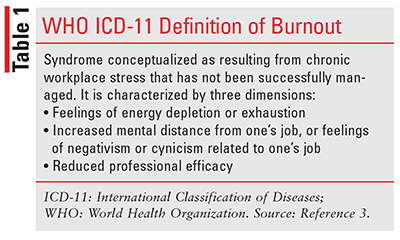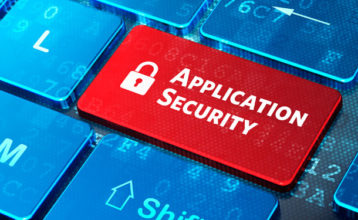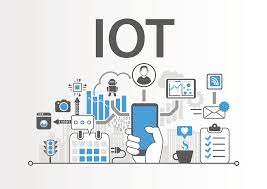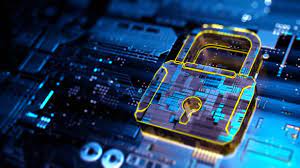How to fight Pharmacist burnout during the COVID-19 Pandemic
- By
- Jonathan Jacobs
This crisis has affected us all in countless ways we’ll be discussing for years to come. Frontline healthcare workers and notably, for this piece Pharmacists, have born the brunt of this stress on a daily basis to the extent that it permeates their work and personal relationships. Pharmacist burnout from the COVID-19 Pandemic is real and can have deadly results if not identified and corrected.
Before we move ahead with ‘solutions’ to this growing problem lets quickly explain burnout with the below graphic

The costs of stay-at-home orders, lockdowns, restrictions on bars and restaurants, and all service industries are savage, and have caused deep economic and psychological misery across the country! Recent riots in major cities have also been an issue for pharmacies specifically, as a targeted business. We’ve had customers with their store’s staff stuck inside waiting for a police escort to their vehicles to be able to leave work and get safely home. Burnout has begun in frontline workers (pharmacists included) swamped by this Pandemic and the tremendous need for patient care in all facets of healthcare. Working 10-14 hour days, 6 days a week has been grueling for some and a nightmare for others. Burnout is affecting the American workforce. While it is an important consideration for all workers, burnout is especially concerning in healthcare workers, such as pharmacists, because it can result in additional negative patient outcomes. Studies have shown that pharmacists have levels of reported burnout higher than many physicians. Data suggest both pharmacists and pharmacy residents are affected by burnout and identify potential causes and solutions. Pharmacist burnout can be caused by numerous factors, a national survey of more than 4700 pharmacists concluded that, although more than half (54.2%) of respondents reported meaningful work, 32% and 33% also said they felt “a lot” or “totally” emotionally and physically exhausted. Community pharmacists demonstrated higher rates of work exhaustion and interpersonal disengagement, as well as lower levels of professional fulfillment, compared with those practicing in hospitals and other work settings. A poster showing the results was presented in the 2020 American Pharmacists Association (APhA) Virtual Poster Hall Gallery.
As the pandemic intensifies burnout factors, pharmacy closures in both rural and metropolitan areas in recent years, as well as additional cuts in reimbursements from pharmacy benefit managers, a la DIR fee’s compound the issue. In a recent May 14, 2020 study – Seventy-one percent of specialty pharmacists suffer from stress or burnout at the workplace, mostly due to a lack of automated prior authorization, according to a recent Surescripts survey.
Not only do administrative tasks disrupt pharmacist job satisfaction, but these tasks also impact how often prescriptions are filled. According to the 400 pharmacist respondents, the average specialty prescription, such as cancer, multiple sclerosis, and rheumatoid arthritis treatments, can take at least four days to fill and it’s not uncommon for patients to wait seven to ten days. These factors along with EHR’s and the administrative work associated with the early beginnings of these networks and the stress and burnout can be overwhelming!
Preventing Burnout
Preventing burnout is complicated. While factors causing burnout in pharmacists can be unique to this career, more pervasive risk factors present in similar healthcare professions suggest an encompassing problem.
Overcoming Burnout
Many of the methods for overcoming burnout once it has occurred are similar to the prevention strategies. Focusing on development of an improved work-life balance can be critical for those who typically work more than 40 hours per week and are experiencing burnout. Ensuring individual wellness needs are also being met through fitness, balanced diet, and relaxation strategies can also improve burnout symptoms once they have occurred. Additionally, building support systems through family, friends, and coworkers can boost morale and reduce feelings of burnout.
What Can We Do?*
- Acknowledge It. “Hi, I’m Elisabeth, and I suffer from pharmacist burnout.” In all seriousness, being aware that burnout exists and identifying those at risk is essential.
- Seek Help. If you think you are experiencing any of the symptoms of burnout, talk to your supervisor. There may be small changes you can make in your daily activities that will help.
- Make Those Small Changes. It’s possible that a different shift or unit assignment, change to your job duties, may alleviate some of the pain. Or, maybe you need to look into a different type of pharmacist position altogether?
- Find Your People. You might just need a little reassurance or a good sounding board. There are so many pharmacist organizations and online groups. I love this group on Facebook for women who are hospital pharmacists and moms.
- Practice Self-care. Taking proper care of yourself is paramount when dealing with pharmacist burnout. Make sure you take breaks, even if it’s to refill your water or eat your lunch outside. Before you go to the OR and punch that rude person in the face, get a coffee. I’m kidding, I’ve never actually hit anyone in the face, nor do I plan on it. For me, self-care has been getting up a little early to read a book and drink some coffee by myself. Most recently, we got a Peloton bike, and I’ve committed to 30 minutes, five days a week. I love the competition, hip hip rides, and the increased energy I’m feeling!
- Take a Vacation. Stop hoarding your PTO until you die. Take a vacation, even a staycation, time off is time off, even if you don’t go anywhere. A few days off each quarter can make a big difference.
- Do Something Else. News flash, you don’t have to be a pharmacist your whole life if it makes you miserable and depressed to the point that you yell at your children in the evenings. Furthermore, there are other jobs out there. If that idea scares you, it’s okay. You have options here. For me, working a side hustle alongside my pharmacist gig has been the answer. As my business grows, I cut back my pharmacist hours. It’s been perfect for our family. Not sure where to start? The Happy PharmD also offers various resources for pharmacists looking to transition into new careers.
Self-care means something different for everyone, and we want to help you in any way we can during the COVID-19 pandemic. The below list contains free, evidence-based digital health tools developed by psychologists specifically designed to promote self-care, including the following Defense Health Agency apps:
- Provider Resilience App offers self-assessments and stress reduction tools along with a dashboard to track your daily resilience rating. This app is foundational to ensure provider resilience (Available in the App Store)
- Virtual Hope Box contains personalized tools to help you with positive coping, through relaxation, distraction, and connecting to others in a time of need. (Available in the App Store and Google Play)
- Breathe2Relax teaches diaphragmatic breathing to de-escalate stress (Available in the App Store and Google Play)
- The Military Meditation Coach Podcast teaches relaxation exercises and tips that help providers keep their mental health on track (https://www.health.mil/podcasts)
Conclusion
Stress and burnout can affect pharmacists in all practice settings and are often associated with issues surrounding time constraints and performance metrics. Symptoms of burnout can include increases in negative physical outcomes such as cardiovascular diseases and obesity as well as mental health impacts such as anxiety and depression. Prevention strategies like focusing on work-life balance, peer support, and self-care are effective in reducing rates of burnout seen in pharmacists. In individuals who experience more severe mental health issues, such as anxiety or depression, mental health support through counseling or therapy is needed. Point of Care Systems cares very much about this topic and all related issues to this COVID-19 crisis and how it relates to Independent Pharmacy. To begin a discussion and to see how our new PMS Pharmacy Management System handles many of the current pain-points in pharmacy today, contact us at info@pocsrx.com or call today 866-398-2718.
Resource
To read more about “What can we do to prevent Burnout” click here *Kelly Blasko, Ph.D., is a clinical psychologist and the lead for mobile health clinical integration at the Defense Health Agency Connected Health branch.
Additional related information and other links:
Isn’t it Time for Pharmacists to Prescribe? -Part I
Learn more about EHR’s Electronic Health Records here




